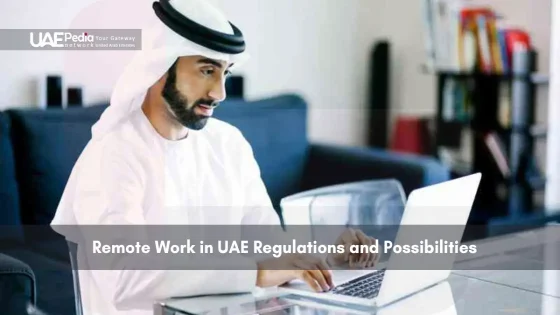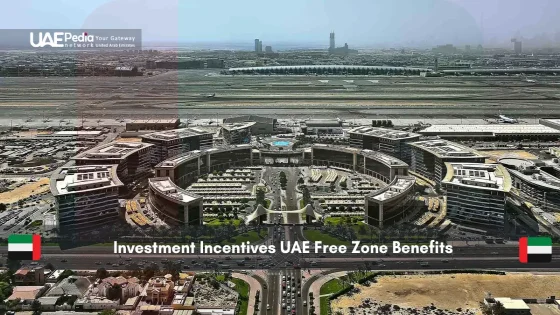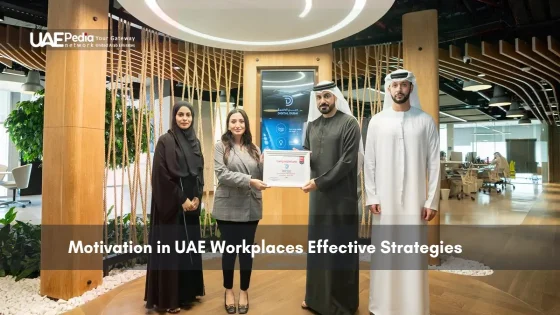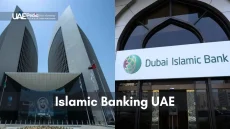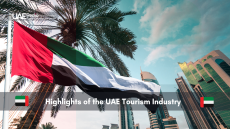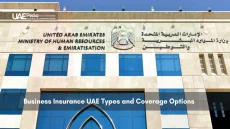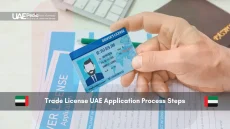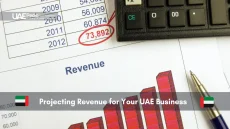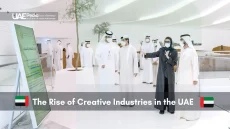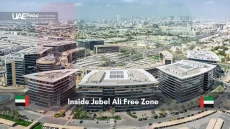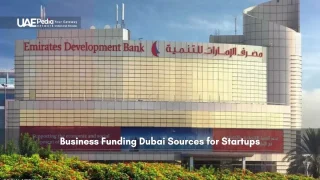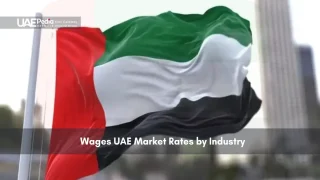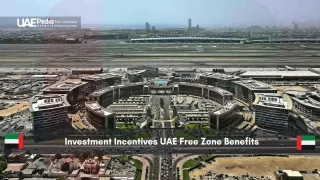What if sand dunes and skyscrapers could coexist with cutting-edge career opportunities? The United Arab Emirates has quietly become a hotspot for professionals blending desert charm with digital innovation—all while maintaining its majlis traditions of hospitality.
As of mid-2025, the UAE’s 5G networks cover approximately 97% of urban areas, with full coverage of all inhabited areas expected by the end of the year, powering co-working spaces in Dubai’s Burj Khalifa shadow and Abu Dhabi’s mangrove-lined business hubs. Yet Friday markets still buzz with spice traders haggling over saffron—a cultural rhythm that fuels creative energy.
We’ll unpack how the Emirates balances rapid tech adoption with heritage preservation. You’ll discover visa options, tax benefits, and hidden cafés perfect for sunset video calls. From navigating local etiquette to leveraging free zones, consider this your roadmap to thriving in a land where ambition meets ancient trade routes.
- The UAE merges ultra-modern infrastructure with time-honored cultural practices
- Flexible professionals benefit from strategic location and business-friendly policies
- This guide clarifies legal frameworks while celebrating unique lifestyle perks
Remote Work Landscape in the UAE: 2025 Overview
Imagine video calls powered by light-speed connectivity—with a side of freshly brewed karak chai from a nearby souk. The United Arab Emirates thrives on contrasts, where 5G towers rise beside centuries-old forts and co-working hubs nestle between spice markets.
Advanced Infrastructure and 5G Connectivity in the UAE
Fiber-optic networks here outpace global averages, with download speeds hitting 200 Mbps in cities. Free zones like Dubai’s DIFC and Abu Dhabi’s Hub71 offer plug-and-play offices—think ergonomic chairs and AI-powered climate control. Need a break? Charging stations double as date palm-shaded lounges.
Balancing Innovation with Cultural Heritage
Remote workers draft proposals in Alserkal Avenue galleries, then unwind at Qasr Al Hosn’s moonlit courtyards. Abu Dhabi’s mangrove boardwalks host brainstorming sessions, while Dubai Creek’s abras (water taxis) ferry laptops between meetings. This isn’t just access to tech—it’s inspiration drawn from layered history.
Communities thrive where tradition meets tomorrow. Friday brunches feature Emirati balaleet alongside avocado toast, and coworking members swap coding tips over Arabic coffee rituals. The Arab Emirates proves cutting-edge careers flourish best when rooted in cultural soil.
Navigating Employment Regulations in the UAE
Ever signed paperwork while sipping karak chai at a beachside café? The Emirates’ employment framework blends centuries-old merchant agreements with Silicon Valley efficiency. Let’s decode the essentials for building teams here.
Employment Contracts and Payment Structures
Two contract types rule the roost. Limited agreements lock in specific durations (1-4 years), ideal for project-based roles. Unlimited versions roll month-to-month, offering flexibility for evolving needs. Both require clear terms on:
| Component | Details |
|---|---|
| Basic Salary | Minimum 60% of total income |
| Housing Allowance | Often 30-40% of package |
| Transportation | Fixed monthly stipend |
Many companies partner with Employers of Record (EORs) to handle payroll. These local experts manage currency conversions, tax-free deposits, and compliance – a lifesaver for global teams.
Working Hours, Overtime, and Probation Policies
Standard weeks run 48 hours (8 daily), with Fridays optional in private sectors. Overtime kicks in at 125% pay for extra hours, 150% on holidays. New hires face probation periods up to 6 months – enough time to assess fit without long-term binds.
The hiring process shines through free zones. Dubai’s DIFC processes work permits efficiently, often within 72 hours, leveraging digital platforms for expedited services, while Abu Dhabi Global Market verifies contracts via blockchain. Workers enjoy protection from sudden termination, provided employers follow notice periods (30-90 days).
As one HR manager told us during a majlis meeting: “Here, clarity breeds trust. Get the paperwork right, and you’ll build teams that thrive in both skyscrapers and sand dunes.”
Digital Nomad Opportunities in the UAE
Picture this: drafting emails from a futuristic high-rise one hour, then bartering for Persian carpets in a centuries-old souk the next. The Emirates has become a magnet for location-independent professionals craving both cutting-edge convenience and cultural immersion.
Digital Nomad Visa Insights
Dubai’s Virtual Work Program offers a 1-year, renewable residency for remote professionals, requiring a minimum monthly income of $3,500 and UAE-approved health insurance for self-employed professionals and remote employees. Applicants need:
| Requirement | Details |
|---|---|
| Monthly Income | $3,500+ (bank statements) |
| Health Coverage | UAE-approved insurance |
| Processing Time | 5-7 business days |
Successful applicants enjoy tax-free earnings and visa sponsorship for family members. One nomad we met at Tom & Serg café shared: “I renewed my permit online while kayaking through mangroves – that’s Emirates efficiency!”
Dubai’s Virtual Work Programme offers a one-year, renewable residency visa for remote professionals. Applicants must demonstrate a minimum monthly income of $3,500 and possess UAE-approved health insurance. This initiative facilitates remote work opportunities while ensuring compliance with local regulations. Ref.: “Dubai’s virtual working programme | The Official Portal of the UAE Government.” [!]
Remote Work Lifestyle Benefits
Beyond paperwork perks, the region serves up unique advantages. Co-working spaces like Nook in Alserkal Avenue blend ergonomic desks with rotating art exhibits. Weekend adventures? Think dune bashing in Liwa followed by rooftop coding sessions overlooking Burj Khalifa.
Key benefits include:
- Zero income tax on global earnings, enhancing disposable income for residents
- 5G coverage extending to desert camps
- Health insurance packages tailored for freelancers
Abu Dhabi’s Hub71 even offers housing subsidies for tech nomads. Whether you’re brainstorming in a Bedouin-inspired café or networking at AI conferences, the Emirates fuels both productivity and wanderlust.
Visa Options and Residency Pathways in the UAE
Ever wondered how sunset desert meetings could pair with hassle-free residency? The Emirates rolls out multiple pathways for global professionals to anchor their ambitions here. Let’s chart your course through the paperwork maze.
Virtual Work Residence Visa Features
Dubai’s Virtual Work Program acts like a golden ticket for location-independent professionals. Valid for one year, this residency requires:
| Criteria | Details |
|---|---|
| Monthly Income | $3,500+ (verified) |
| Health Insurance | UAE-approved plan |
| Processing Fees | $611 total |
Renewals take three clicks online—no embassy queues. One digital marketer joked during our ghahwa break: “It’s easier to renew than my Netflix subscription!”
Golden and Green Visa Opportunities
For longer stays, consider Dubai’s 10-year Golden Visa (investors/entrepreneurs) or the 5-year Green Visa (skilled professionals). Both options:
- Waive employer sponsorship requirements
- Allow family inclusion without caps
- Offer flexible exit/re-entry periods
“These visas transform temporary stays into legacy-building journeys,” notes a Gulf Business report.
Typical application fees for the Golden Visa range from approximately AED 4,800 to AED 25,000, depending on the category and duration. Most applications process within 30 days through the GDRFA portal. Pro tip: Schedule medical exams early—they’re the only in-person step!
Investors can now qualify for the UAE’s 10-year Golden Visa by investing a minimum of AED 2 million in Dubai property. This streamlined process allows for immediate application upon obtaining the property title deed, facilitating long-term residency for entrepreneurs and investors. Ref.: “Mehta, A. (2025). Golden Visa in Dubai: Can new investors qualify instantly with Dh2 million property investment? Times of India.” [!]
Entrepreneurial Landscape and Business Incentives
Where else can a startup founder brainstorm in a desert oasis one day and pitch to global investors the next? The Emirates’ business landscape thrives on this duality—ancient trade wisdom meets AI-powered ambition. Multinational giants and homegrown ventures alike find fertile ground here, thanks to policies that spark innovation while honoring cultural roots.
Local Talent and Global Expansion
Tech titans like Amazon and Microsoft have planted regional flagships in Dubai’s DIFC, drawn by tax incentives and strategic access to MENA markets. But it’s not just industry giants—homegrown successes like Careem (acquired by Uber for $3.1 billion) showcase local talent scaling globally. The secret sauce? A three-part mix:
| Factor | Global Players | Startups |
|---|---|---|
| Market Access | 70+ international trade agreements | Incubators like in5 |
| Funding | Corporate venture arms | $1 billion tech fund initiatives |
| Talent | 90% expat workforce | Emiratization skills programs |
Government initiatives fuel this ecosystem. The thriving startup ecosystem benefits from 100% foreign ownership laws and free zones offering custom licensing. Abu Dhabi’s Ghadan 21 accelerator pumps $13.6 billion into smart city projects, while Dubai Future Foundation prototypes flying taxis.
“The Emirates doesn’t just host businesses—it architects their success,” notes a McKinsey Gulf report. From fintechs revolutionizing Islamic banking to sustainable ventures tapping into solar-rich deserts, the region’s advantages help ventures thrive like date palms in arid soil—against odds, yet bearing sweet fruit.
Leveraging World-Class Infrastructure and Connectivity
Think your coffee shop Wi-Fi is fast? Try uploading 4K videos from a Dubai Metro carriage—while it’s moving. The Emirates’ tech backbone turns what’s cutting-edge elsewhere into everyday reality here, blending warp-speed connectivity with frictionless physical access.
“UAE Mandatory Health Insurance Requirements: UAE Mandatory Health Insurance Requirements“
State-of-the-Art Communication Networks
Etisalat’s 5G towers deliver 1.2 Gbps speeds—enough to stream 50 HD videos simultaneously. Fiber-optic lines stretch from Abu Dhabi’s Masdar City to Ras Al Khaimah’s mountain resorts, ensuring video calls never buffer, even during desert glamping trips.
This digital muscle powers more than Zoom meetings. Autonomous delivery bots navigate Dubai sidewalks using real-time data, while AI-powered traffic lights in Sharjah adjust patterns based on live congestion updates. For location-independent professionals, it means:
| Feature | Global Average | UAE Performance |
|---|---|---|
| Mobile Speed | 55 Mbps | 210 Mbps |
| Broadband Latency | 30ms | 8ms |
| Public Wi-Fi Hotspots | 12/km² | 47/km² |
Transportation systems amplify these advantages. Dubai’s driverless metro syncs with ride-hailing apps, calculating optimal transfer times. Need to hop from a co-working space in DIFC to a client lunch in Jumeirah? The RTA app bundles metro, tram, and e-scooter routes into one 15-minute plan.
“The UAE’s infrastructure doesn’t just support remote work—it redefines what’s possible,” states a recent analysis by TechRadar Pro.
This seamless integration of digital and physical networks lets professionals collaborate across time zones without missing a beat. You’re not just accessing resources—you’re operating at the speed of ambition.
“Dubai vs Abu Dhabi Living Expenses: Dubai vs Abu Dhabi Living Expenses“
Adapting to UAE’s Cultural and Lifestyle Norms
Ever brainstormed a project under palm-frond shades while the scent of oud wafts from a nearby market? The Emirates offers a daily dance between centuries-old customs and cosmopolitan convenience. Let’s explore how professionals thrive in this cultural mosaic.
Local Traditions and Modern Amenities
Bur Dubai’s winding alleys reveal spice-scented souks where artisans craft camel leather notebooks—perfect for jotting ideas between video calls. Meanwhile, expat-favorite districts like Dubai Marina boast AI-powered grocery delivery. The key? Respectful adaptation:
- Schedule meetings around Friday prayers (1-3 PM)
- Swap handshakes for polite nods during Ramadan
- Balance air-conditioned coworking days with sunset dhow cruises
“Employee Benefits UAE: Employee Benefits UAE Standard and Additional Options“
Entertainment and Recreational Highlights
Weekends here aren’t just brunches—though those date-syrup pancakes are legendary. Dive into Deira’s textile quarter for silk bargaining masterclasses, then unwind at Alserkal Avenue’s neon-lit art installations. Our favorite hybrid spots:
| Tradition | Modern Twist |
|---|---|
| Desert camping | Starlink-enabled glamping |
| Pearl diving tours | VR historical reenactments |
| Arabic calligraphy workshops | Digital art NFT galleries |
As a café owner in Al Quoz shared during our visit: “We serve specialty coffee in khaleeji cups—it’s where heritage meets hashtags.” Whether you’re networking at rooftop cinemas or learning Bedouin star navigation, every day here stitches past and future into your routine.
Health Insurance and Employee Benefits Management
Ever negotiated health coverage between sunset yoga and a desert safari? The Emirates wraps modern safeguards into its golden sands, ensuring professionals thrive physically and financially. Let’s unpack the essentials for staying protected while chasing horizons.
Your Safety Net in the Sand
UAE law mandates employers provide health insurance for all staff—including remote teams. Basic plans cover emergencies and specialist visits, while premium options add dental and mental health services. Freelancers can access health insurance plans through platforms like Esaa, with basic packages starting at approximately AED 100 per month.
Effective January 1, 2025, the UAE mandates that all private sector employees and domestic workers possess basic health insurance. Employers are responsible for providing this coverage as a prerequisite for issuing or renewing residency permits, ensuring comprehensive healthcare access across all emirates. Ref.: “Ministry of Human Resources and Emiratisation. (2025). The Basic Health Insurance Scheme.” [!]
Time Off That Actually Recharges
Workers enjoy 30 paid vacation days annually, plus:
- 90-day sick leave (full pay first 15 days)
- 45-day maternity leave at 100% salary
- 5-day paternity leave for new fathers
One tech lead shared over karak chai: “My company topped up my parental leave using their holiday pay policy—turned three months into four!”
Pro tip: Always verify insurance networks. That beachside clinic might not accept your card, but Burjeel Hospital’s 24/7 telemedicine does. Stay covered, stay adventurous.
UAE Cost of Living and Financial Planning
How does a tax-free paycheck stretch when groceries cost less than your morning latte? Let’s crunch numbers where desert sun meets urban convenience.
Housing and Daily Budget Breakdown
Housing costs vary significantly by location; for instance, a one-bedroom apartment in Dubai averages around AED 5,500 to AED 8,000 per month, while in Abu Dhabi, it ranges from AED 4,800 to AED 7,000. A studio in Dubai Marina runs $1,800/month, while Sharjah’s family villas start at $1,200. Pro tip: Many residents split costs through co-living spaces in Deira or Al Barsha.
| Expense | Dubai | Abu Dhabi |
|---|---|---|
| 1-bed apartment | $1,500-2,200 | $1,300-1,900 |
| Utilities/month | $120-180 | $100-160 |
| Groceries/month | $300-450 | $280-400 |
Weekly farmers’ markets slash food bills—think $5 for 1kg tomatoes. A karak chai costs 50 cents, while gym memberships hover around $80/month. Transportation? The Nol card caps metro/bus spend at $54 monthly.
STATISTICAL EVIDENCE:
In 2025, average monthly rents for a one-bedroom apartment range from AED 5,000 to AED 8,000 in Dubai and AED 4,800 to AED 7,000 in Abu Dhabi. Utility costs average between AED 450 and AED 600 per month, while groceries for a single person typically cost AED 1,000 to AED 1,500 monthly. Ref.: “PropertyStellar. (2025). Dubai vs Abu Dhabi: Cost of Living Comparison 2025.” [!]
“Cost of Living & Budgeting: Cost of Living & Budgeting“
Salary Superpowers
Zero income tax implies that a $5,000 monthly income in the UAE is equivalent to approximately $6,700 in New York after accounting for taxes. Tech roles often include housing allowances—up to 40% of packages. One marketing director shared: “My disposable income doubled versus London, even with pricier rent.”
“The Emirates lets you keep what you earn—every dirham stays yours to invest or explore,” notes a Bayt.com salary survey.
Smart budgeting unlocks luxuries. Residents dine at food trucks ($7 meals), use Groupon for skydiving deals, and swap cabs for e-scooters. Pair tax-free gains with strategic spending, and golden sands feel even sunnier.
Compliance and Best Practices for Remote Work in the UAE
Navigating legal requirements here feels less like red tape and more like following a well-marked desert trail—clear paths through shifting sands. The Emirates blends modern labor codes with traditional wasta (influence) systems, creating a unique compliance landscape for digital professionals.
“UAE Labor Laws: UAE Labor Laws Every Worker Should Know“
Ensuring Regulatory Compliance
Start with registration through free zones or mainland licensing. Companies must outline telework policies in employment contracts—specifying equipment responsibilities and data security protocols. Workers need valid residency visas even for location-independent roles.
Three-step process for smooth operations:
- Submit monthly wage protection system reports
- Renew trade licenses before expiration dates
- Maintain health insurance coverage for all team members
Government bodies like the Ministry of Human Resources (MOHRE) conduct random audits. Their smart inspection system flags discrepancies in real-time. One legal consultant shared during a majlis discussion: “Treat compliance like sunscreen—apply it daily, not just when problems arise.”
Timely renewal of documents prevents penalties. Set calendar reminders 45 days before visa expirations. Many firms use automated platforms like Tasheel for deadline tracking. When challenges emerge, local PROs (Public Relations Officers) can negotiate extensions or waivers.
To maintain compliance with UAE labor laws, companies must submit monthly wage protection system reports, renew trade licenses before expiration, and ensure all employees have valid health insurance coverage. Failure to adhere to these requirements can result in penalties and operational disruptions. Ref.: “The Law Reporters. (2025). UAE’s mandatory health insurance for workers begins: Everything you need to know.” [!]
“Clear communication with authorities builds trust faster than any legal loophole,” advises a Dubai-based HR director.
Integrating Global Talent into the UAE Business Ecosystem
What if a coffee break could spark a partnership spanning three continents? The Emirates’ business ecosystem thrives on this alchemy—local gahwa rituals blending with Silicon Valley hustle. Over 200 nationalities collaborate here, turning sand-streaked notebooks into billion-dollar ventures.
Multinational giants and startups alike tap into this crossroads advantage. Microsoft’s AI lab in Abu Dhabi partners with Emirati coders to adapt tech for Arabic markets. Homegrown success Careem merged local transit knowledge with global engineering to dominate regional ride-hailing before its $3.1B Uber acquisition.
Three strategies fuel seamless talent integration:
- Cross-cultural mentorship programs pairing expats with Emirati counterparts
- Flexible project teams that rotate between free zones and heritage districts
- AI-driven recruitment platforms matching skills to hyper-local market needs
| Company | Approach | Outcome |
|---|---|---|
| Swvl | Hired Egyptian engineers + Dubai logistics experts | Expanded to 10 countries in 18 months |
| Emirates NBD | Launched fintech incubator with global coders | Developed blockchain payroll for 50K+ employees |
Collaboration spaces like Hub71 and DIFC amplify these connections. A Jordanian app developer recently told us over cardamom-spiced coffee: “My Emirati co-founder knows which souk vendors will beta-test our inventory tool—that local insight is gold.”
“The UAE’s talent density per square mile rivals Manhattan’s—but with superior connectivity and diverse culinary offerings,” notes a LinkedIn workforce report.
This fusion drives measurable growth. Startups with mixed teams secure 37% more funding here than regionally. As boundaries between local wisdom and global expertise blur, businesses don’t just adapt—they redefine what’s possible.
“Working Hours Regulations UAE: Working Hours Regulations UAE Labor Law Guide“
Navigating Remote Work in the UAE
Charting your course through the Emirates’ remote work landscape becomes simpler when you balance cultural savvy with logistical smarts. Start by aligning your visa strategy with career goals—whether opting for the 1-year virtual residency or pursuing long-term Golden Visa perks.
Three steps anchor success here:
- Secure health coverage meeting UAE standards
- Choose banking partners offering multi-currency accounts
- Schedule monthly compliance check-ins
Financial advantages shine brightest when managed wisely. Tax-free earnings let professionals reinvest 30%+ more than global averages—funding everything from desert retreats to AI tools. Time your move during cooler months (Oct-Mar) to ease acclimation while networking peaks at tech summits.
“Remote Work Visa UAE:
Local banks like Emirates NBD streamline international transfers with competitive rates, while digital nomad communities share hacks for minimizing telecom fees. Embrace the rhythm of merging productivity with cultural discovery—draft proposals by sunrise, then unwind at pearl-diving heritage tours.
This crossroads of innovation and tradition rewards those who plan thoughtfully yet stay open to serendipity. With paperwork sorted and sunset cafés bookmarked, you’re ready to thrive where ambition meets ancient trade routes.
Absolutely! The UAE’s Virtual Work Residence Visa lets you operate as a freelancer or remote employee for companies outside the Emirates. You’ll need proof of employment, health insurance, and a minimum income of ,500/month. No sponsor required—just apply online through the ICP portal.
Beyond tax-free income, you get next-level infrastructure—think 5G speeds, coworking hubs like Nook in DIFC, and zero commute days thanks to metro networks. Plus, weekend desert glamping or Friday brunches blend work-life balance with Emirati flair.
It’s mandatory. If your overseas company doesn’t cover you, local providers like Daman offer basic plans from AED 600/month. Dubai’s visa process even blocks approval until you upload proof—so factor this into your budget.
100%. This 10-year residency lets you skip visa runs, open UAE bank accounts, and access premium services. Tech founders, content creators, and specialists earning AED 30,000+/month qualify. Bonus: family sponsorship includes spouses, kids, and even household help.
Respect midday breaks during Ramadan, and schedule meetings around Friday prayers. But don’t stress—Dubai’s global vibe means flexibility reigns. Just avoid video calls in beachwear; opt for business casual even at home.
A comfy one-bed in Dubai Marina runs ~AED 8,000/month, while shared spaces in Ajman start at AED 2,500. Groceries? Similar to NYC. But with no income tax and free zones like Dtec offering subsidized desks, your dirham stretches further here than in many hubs.
Yes! Platforms like Nabbesh connect you with UAE-based marketers, developers, and bilingual admins. Or tap into free zones’ flexi-desk packages—some include PRO services to handle employment visas for your team.
Stay sharp on two fronts: data privacy (UAE’s PDPL law applies even to cloud-stored client info) and invoicing. Freelancers must issue e-invoices via the EmaraTax portal. We recommend PwC’s UAE tax toolkit—it’s a lifesaver for zapping bureaucracy.
